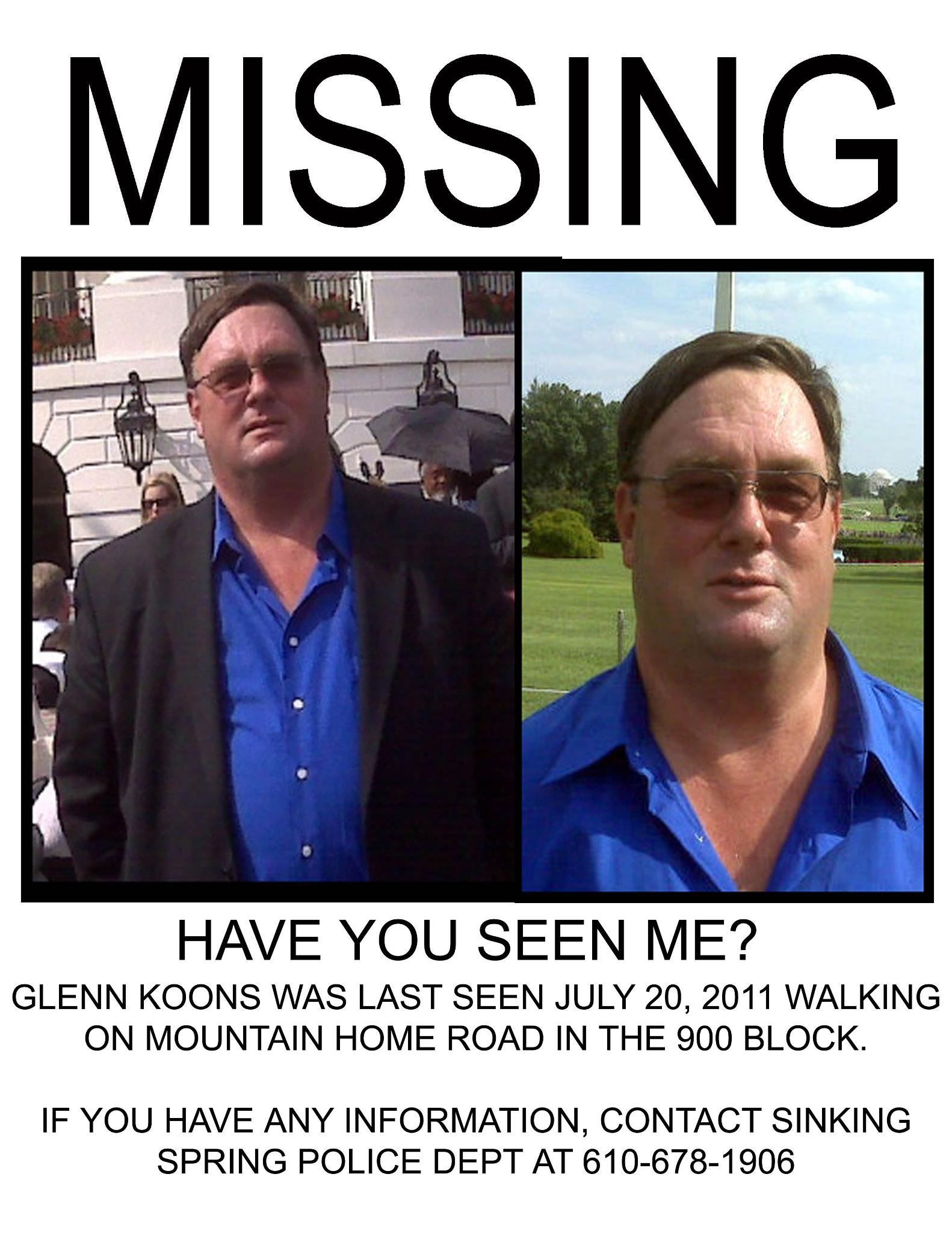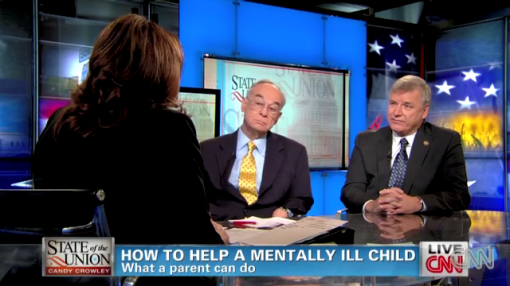
*Several of Glenn Koons’ friends have posted comments on the blog post that I published about his death. If you take a moment to read them, you will discover there are several disturbing questions about his death that have not been answered.

*Several of Glenn Koons’ friends have posted comments on the blog post that I published about his death. If you take a moment to read them, you will discover there are several disturbing questions about his death that have not been answered.
Happy Fourth of July!
A new Psychiatric Crisis Resource Kit that can help families if someone they love develops a mental disorder is scheduled to be unveiled this week in Chicago at the national convention of the National Alliance on Mental Illness. It’s been developed by the Treatment Advocacy Center. 
Of course, the first thing that comes to mind whenever someone mentions TAC is its aggressive and relentless campaign to promote Assisted Outpatient Treatment laws. But whether you support AOT laws or oppose them really doesn’t matter. All of us with loved ones who have a mental disorder need to be prepared and from what I have seen so far, TAC has done a real service by putting together a mental health first aid kit.
When my son first became ill, I was completely at a loss about what to do. And based on the emails and letters that I receive weekly, other parents, families and friends find themselves in the same situation.
For instance, the kit recommends that families compile a list of telephone numbers for key people, agencies and organizations that should be contacted if there is an emergency. While that sounds like a no-brainer, how many of us have the telephone number of a mobile crisis team, a psychiatric case manager, or an Assertive Community Treatment (PACT or ACT team) handy? Do you know the emergency numbers for your community mental health provider? How about your local suicide hotline? Do you know if your community has a Crisis Intervention Team and, if so, how to contact it. What’s the number of a public defender who knows mental health laws? Or a private attorney? Is there a mental health court in your jurisdiction and, if there is, do you know what sort of cases it will hear?

Update: The clip from the show has been added to the post.
Candy Crowley is examining the State of the Union: Mental Health on Sunday, 1-16-11, and I will be one of her guests. Dr. Fred Frese and I are scheduled to be interviewed between 9:15 a.m. and 9:30 a.m. EST about our experiences in the mental health system. Continue reading to view the clip from the show.


Bob Carolla at the National Alliance on Mental Illness has been tirelessly lobbying editors, bloggers, and columnists to ask candidates in the upcoming November elections about the need for mental health reforms. Because of the recession, many states are cutting budgets and mental health funding often is an easy target.
We need to stop that from happening. 
Carolla and NAMI are wisely pointing out that cutting the budgets for mental health programs is counter-productive, especially when those cuts lead to persons with chronic illnesses ending up in jails and prisons because of a lack of adequate community services.
"Pete Earley is a fair-minded reporter who apparently decided that his own feelings were irrelevant to the story. There is a purity to this kind of journalism..."
- Washington Post"A former reporter, Mr. Earley writes with authenticity and style — a wonderful blend of fact and fiction in the best tradition of journalists-turned-novelists."
- Nelson DeMille, bestselling author"A terrific eye for action and character. Earley sure knows how to tell a story. Gripping and intelligent."
- Douglas Preston, bestselling co-author of The Relic

Pete Earley is the bestselling author of such books as The Hot House and Crazy. When he is not spending time with his family, he tours the globe advocating for mental health reform.
As a former reporter for The Washington Post, Pete uses his journalistic background to take a fair-minded approach to the story all while weaving an interesting tale for the reader.
Sign up to receive blog posts and the latest from Pete including new books and resources.
Copyright © 2025 · Education Child Theme on Genesis Framework · WordPress · Log in